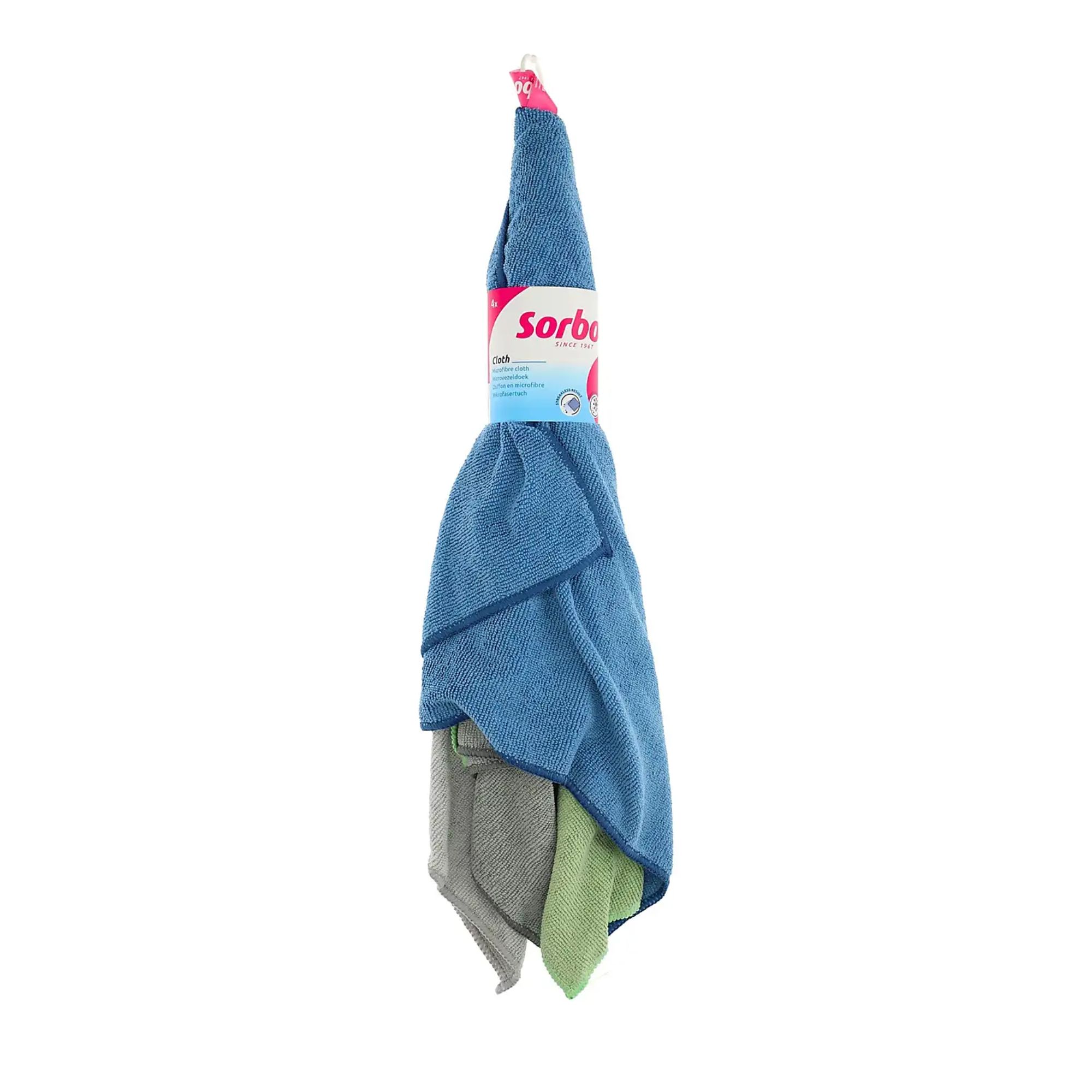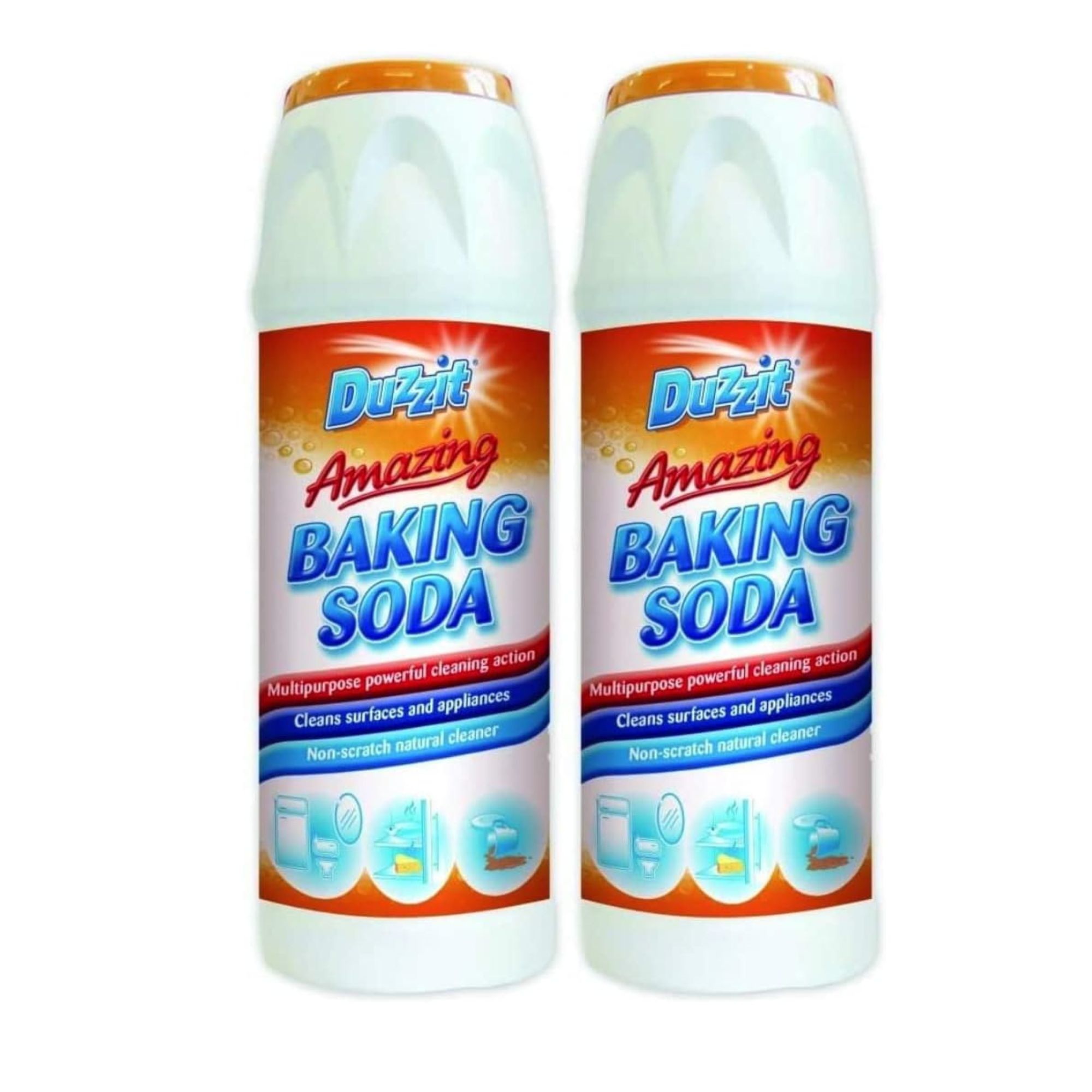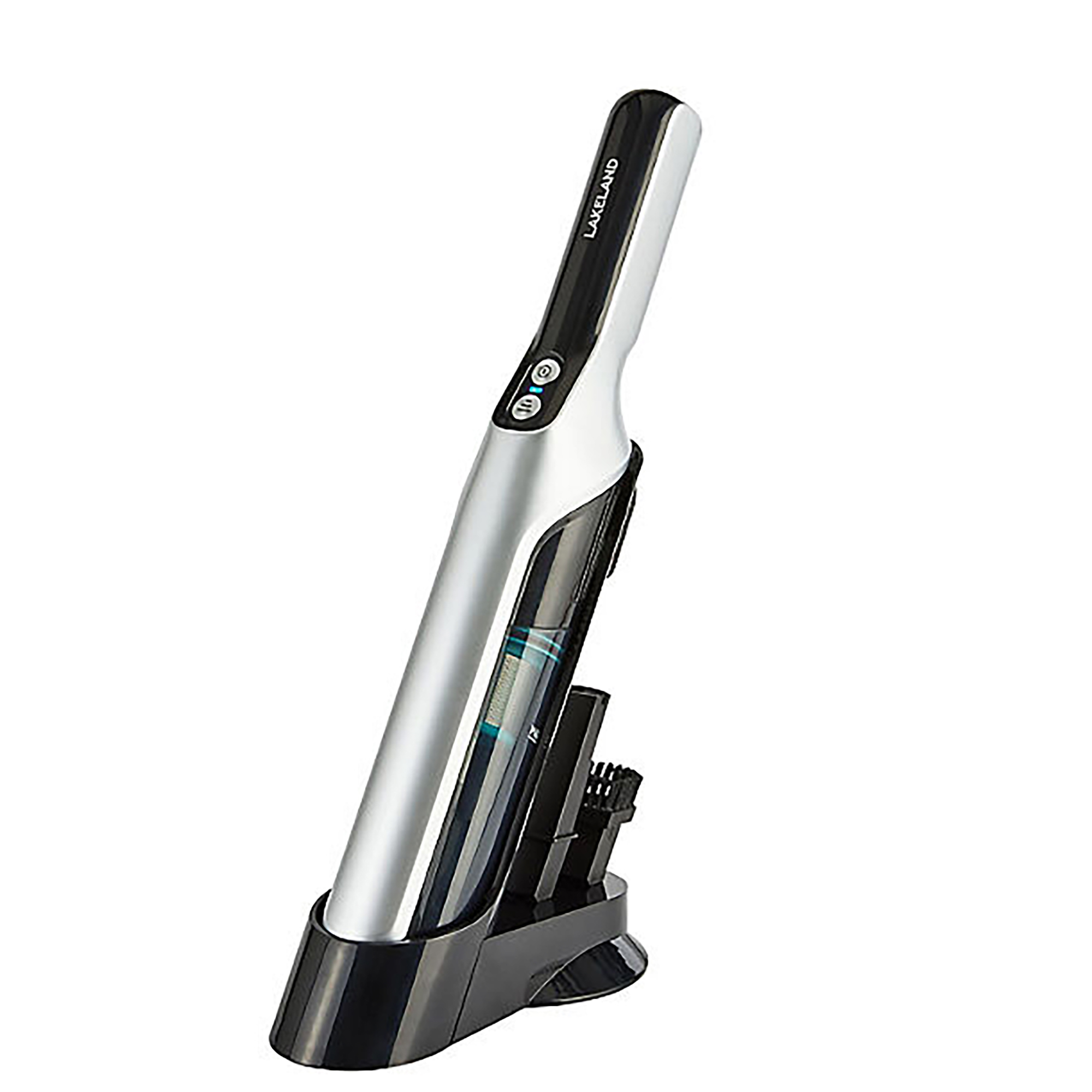How to clean a kitchen like a professional chef - 6 tricks of the trade you can use in your own home
Do as the pros do
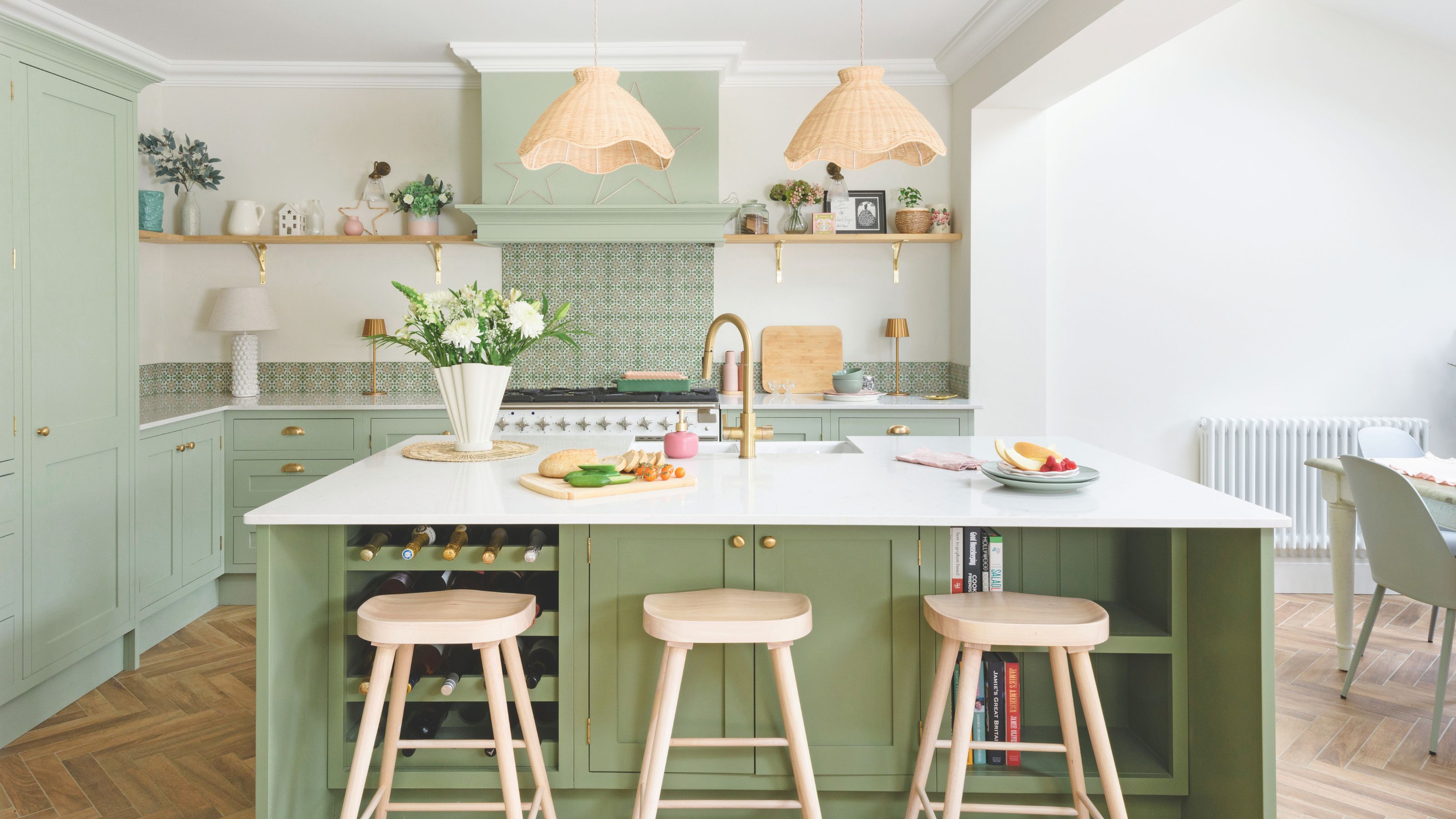

Most of us would be lying if we said we enjoy cleaning our kitchen. It’s boring, time-consuming work that seems utterly pointless - especially when it’s full of dirty plates, muddy footprints, and tea stains just a few hours later. However, learning how to clean a kitchen like a professional chef can make this process more enjoyable and efficient.
Of course, cleaning a kitchen in 15 minutes is possible, but some of us just don’t have the time (or, quite frankly, the energy or desire) to do that. Instead, we do everything we can to avoid cleaning kitchen cabinets, scrubbing the floor with one of the best mops, or cleaning the grime-caked oven. That’s why learning how the pros - who are required by law to keep their kitchens squeaky clean at all times - clean their kitchens can work in our favour.
By doing as the pros do, we can spend less time cleaning our kitchens and more time cooking (or eating) without compromising on the cleanliness of the space. In fact, learning how to clean a kitchen like a professional chef will leave your kitchen sparkling like never before.
1. Clean as you go
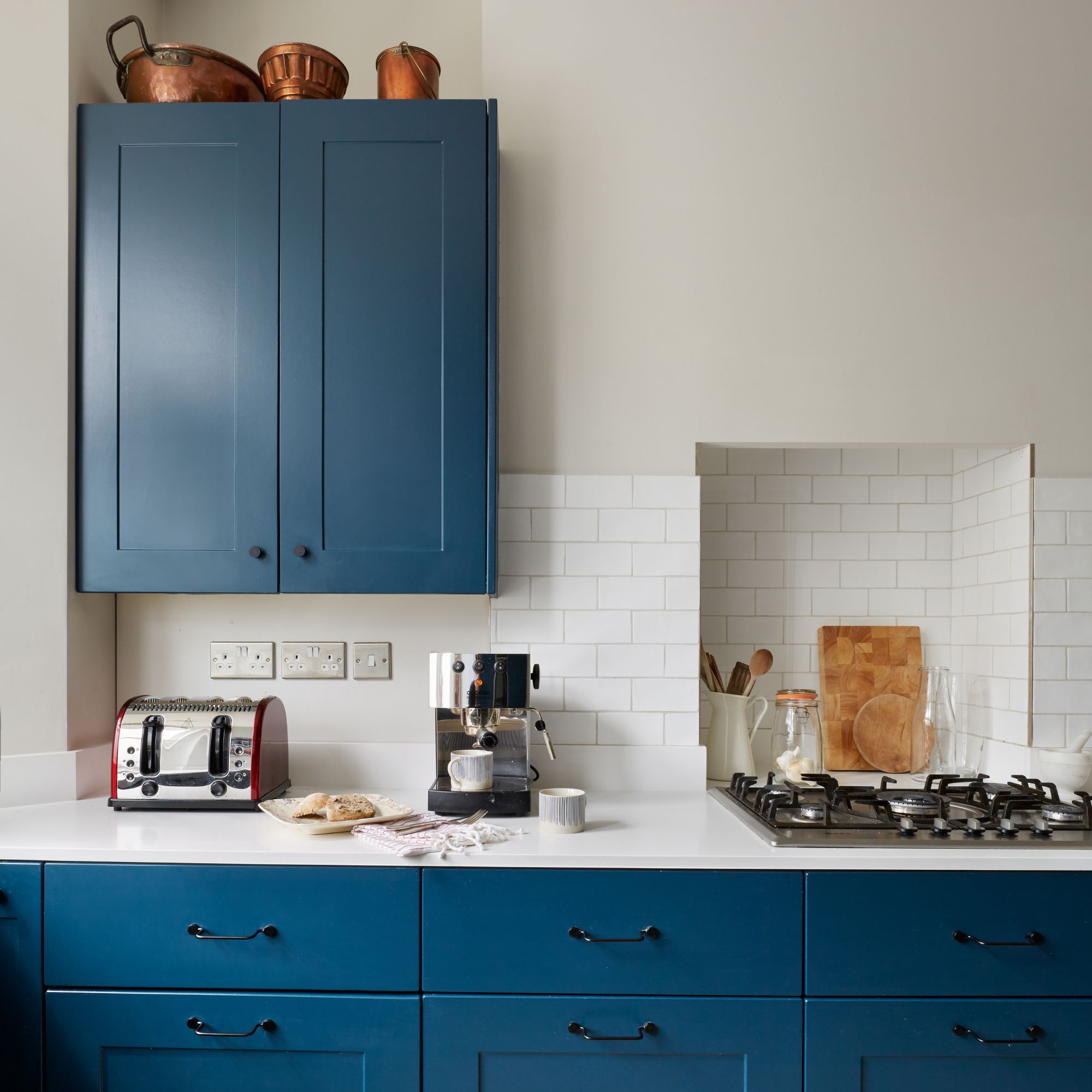
I’ll be the first to admit that I often leave kitchen cleaning tasks longer than I should - especially at the weekend. As a little treat to myself, I’ll ditch the washing-up and cleaning and vow to do it all on Sunday in preparation for the week ahead instead. But my small kitchen is a complete mess by Sunday, and cleaning it becomes even more daunting.
That's why professional chefs always clean as they go. Steven Carter-Bailey, Food Expert at ProCook, explains, ‘As you cook, clean items you've finished with. For example, grab a few minutes whilst onions are sautéing to wipe down, clear up, and reset.’
He adds, ‘This new canvas is much easier to work in and makes the entire process much less stressful. Chefs clean up spills, wash utensils, and clear clutter as they work, which helps prevent accidents and keeps the cooking process smooth.’
In fact, Tom Clarke, Michelin-starred head chef and owner of fine-dining restaurant The Windmill, always has one trick up his sleeve when he’s cooking: a bowl of hot water. He urges home cooks to do the same, too.
Get the Ideal Home Newsletter
Sign up to our newsletter for style and decor inspiration, house makeovers, project advice and more.
‘Always have a basin of hot, soapy water ready to wash utensils or surfaces in between prep steps. This helps maintain cleanliness without piling up dirty dishes,’ he says.
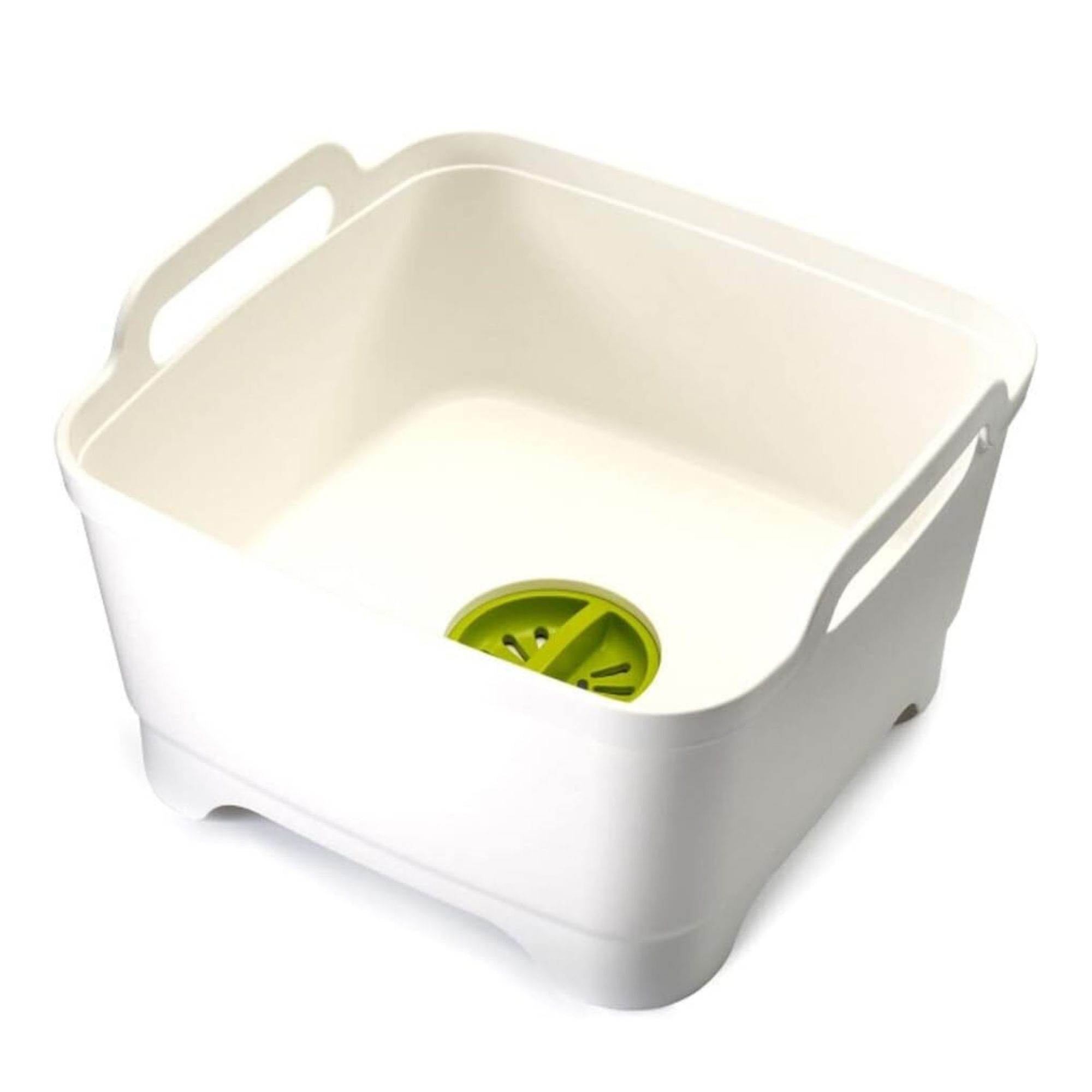
It's well worth investing in a high-quality washing-up bowl when cleaning your kitchen, and this one comes with a removable that allows you to drain or strain water, eliminating the need to lift or empty a heavy bowl.
2. Degrease regularly
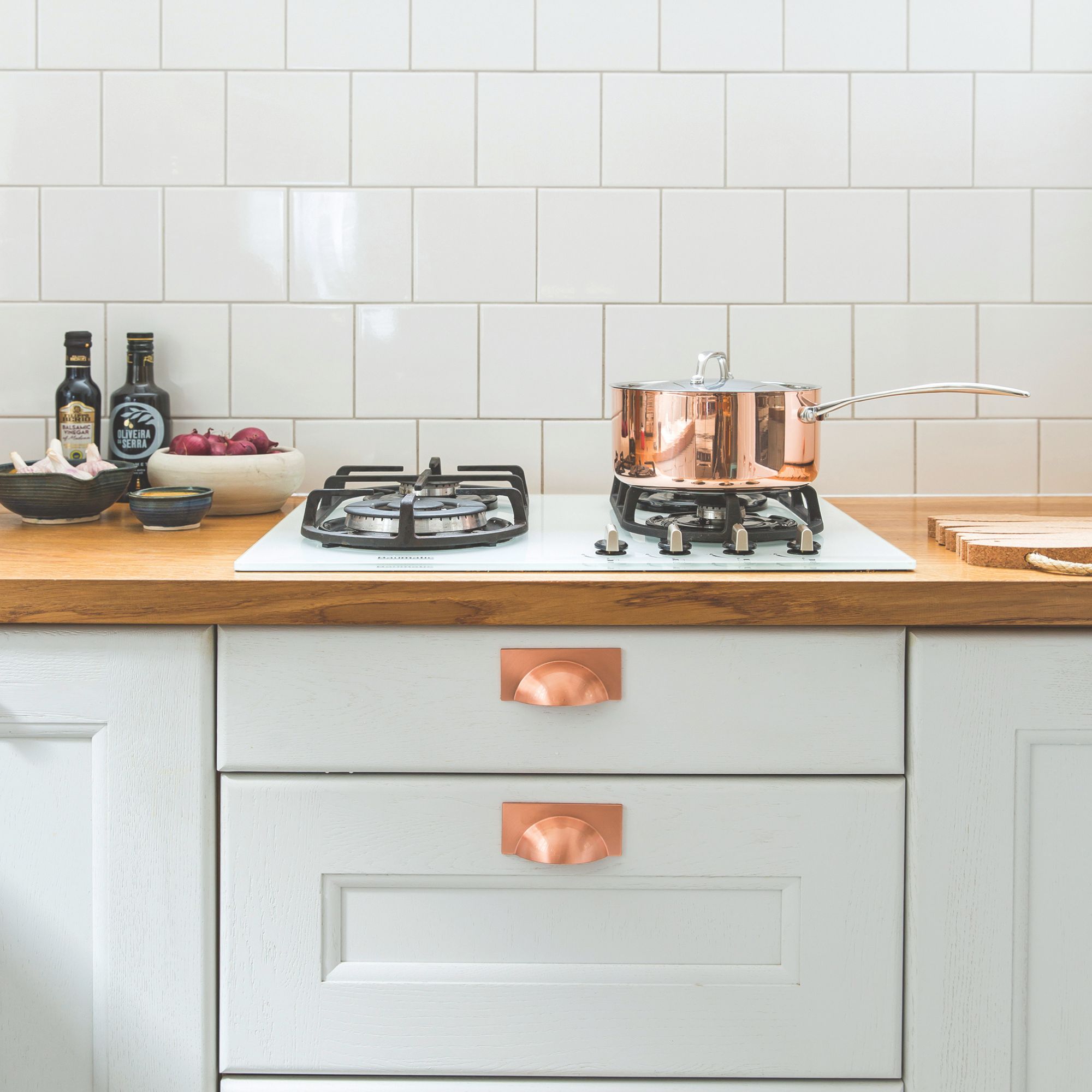
Knowing how to clean a gas hob or clean an induction hob is key to a clean kitchen, but there’s a difference between cleaning and de-greasing. And while professional chefs fry eggs and sear steaks like the rest of us, they don’t allow the grease to build up around the kitchen. Instead, they degrease regularly.
Dennis Littley, a fine dining chef and owner of askchefdennis.com, says, ‘It's no secret that kitchens get greasy fast, especially around the hob. I recommend using a good degreaser for those stubborn spots. A quick spray on greasy areas, followed by a wipe-down with a microfibre cloth, can keep things clean and save you a big scrub-down later.’
But according to Dennis, the cleaning tools you need for the job matter when you’re trying to clean a kitchen like a professional chef.
‘Microfibre cloths are great because they trap dirt and grease and are reusable, which is easier on the environment and your wallet. Baking soda is also a great tool for cleaning, and us chefs swear by it. It’s non-toxic and works wonders on tough stains. Sprinkle a bit on your hob, countertops, or in the sink, add a little water to make a paste, let it sit for a few minutes, and scrub away. It’s great for getting rid of any stubborn grime without using harsh chemicals.’
Of course, there are some things that you should never clean with bicarbonate of soda, but it can still work wonders in the kitchen.
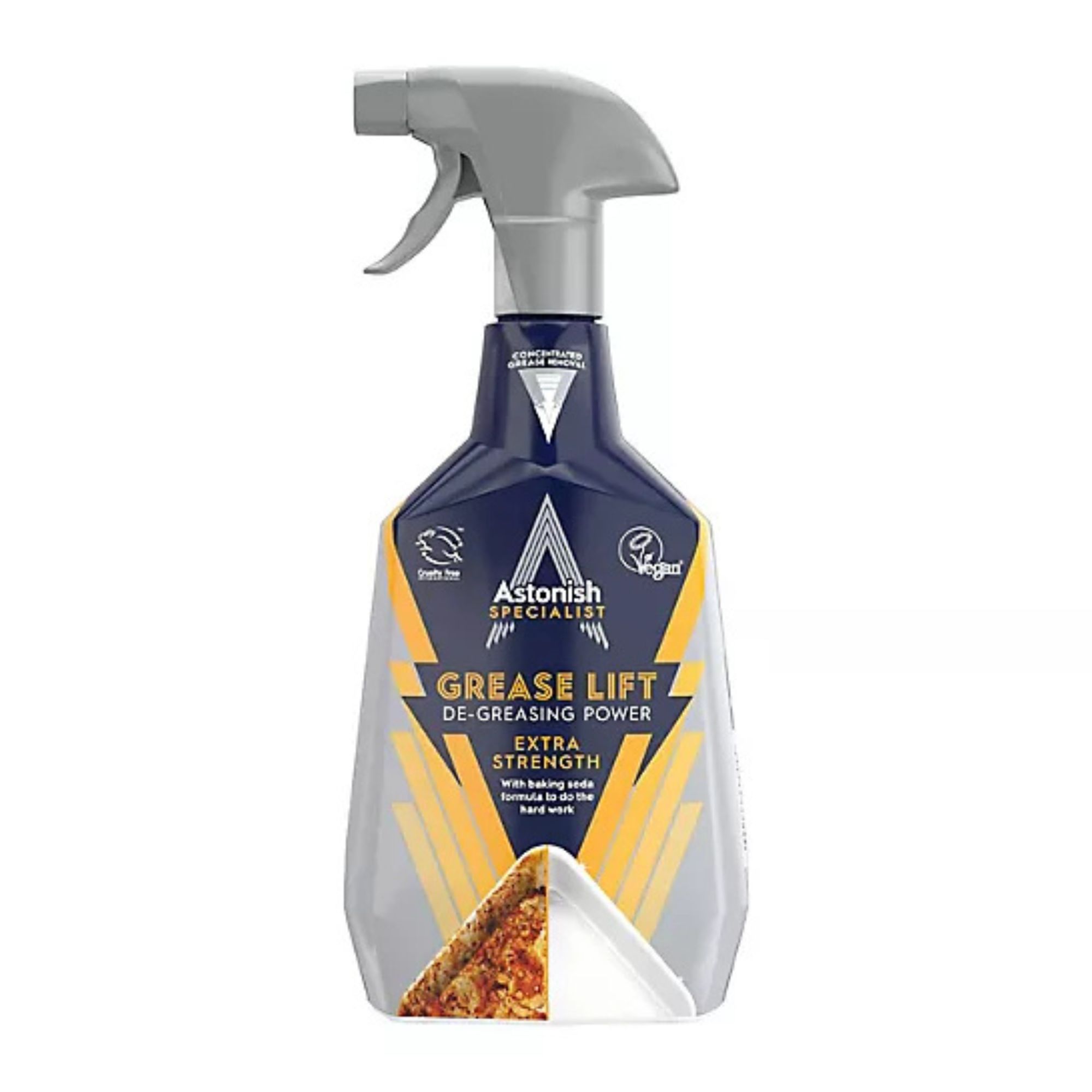
This degreaser is ideal pans, cookers and kitchen surfaces, is cruelty-free and vegan-friendly and will even leave behind a lovely citrus scent after degreasing your kitchen.
3. Focus on the floor
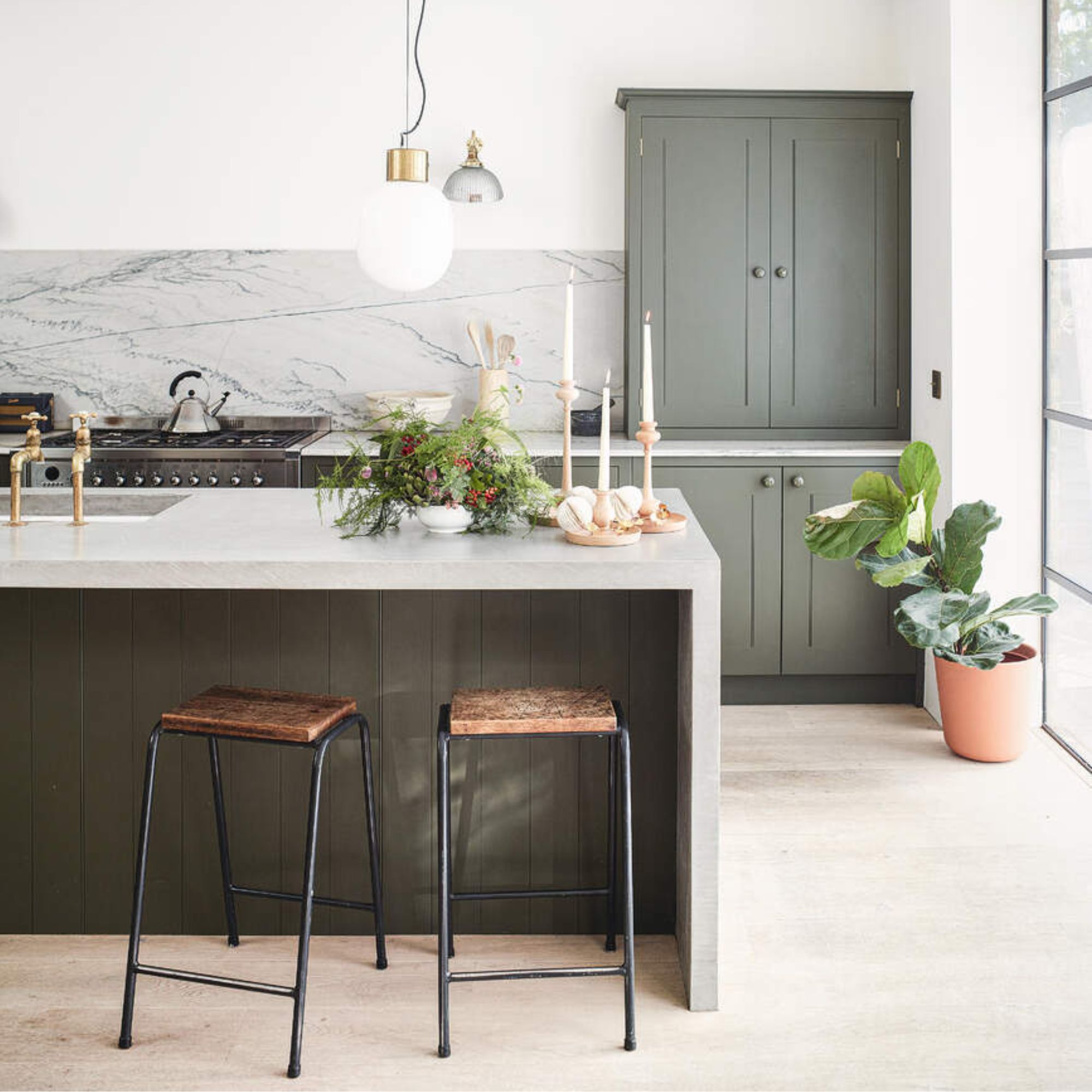
Although there are many kitchen flooring ideas out there, most people have hard flooring in their cooking space. After all, nobody wants spills or crumbs getting stuck in a carpet. But it’s easy to forget about your floor when cleaning the rest of your kitchen.
That’s why Dennis suggests taking a moment to focus on the floor if you want to clean a kitchen like a professional chef. ‘You’d be surprised at how much food debris and spills can make their way to the floor during cooking without realising,’ he says.
‘Keep a cloth, broom or handheld vacuum nearby and give the floor a quick sweep after cooking. It makes the kitchen feel so much cleaner and saves you from tracking crumbs around the house,’ he adds.
Naturally, you probably already have one of the best vacuum cleaners and a mop in your cleaning cupboard, but you should also consider the vacuum vs mopping debate when cleaning a kitchen like a professional chef. While vacuuming is great for a quick whizz around as you’re cooking, a mop will offer a deeper clean when you’ve finished.
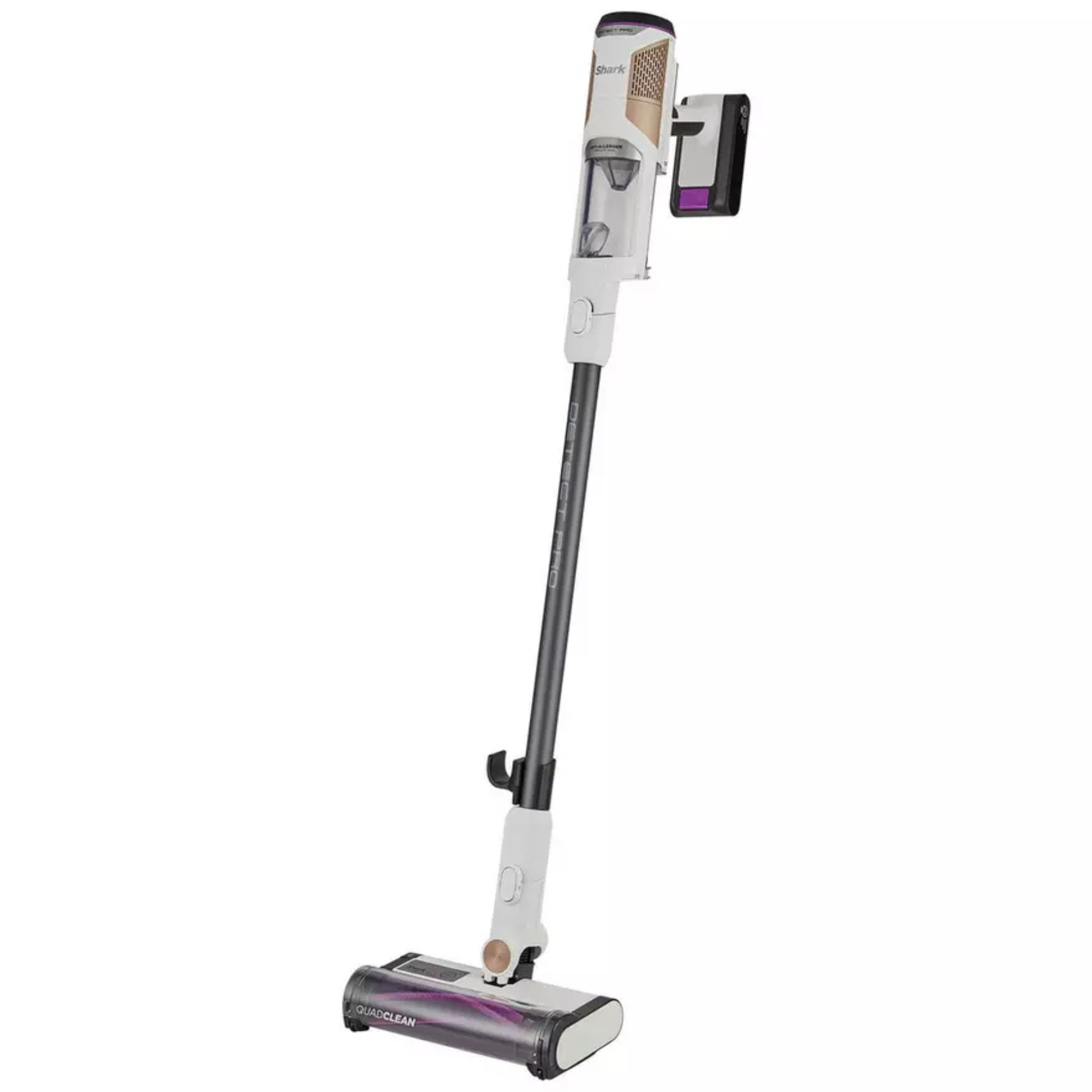
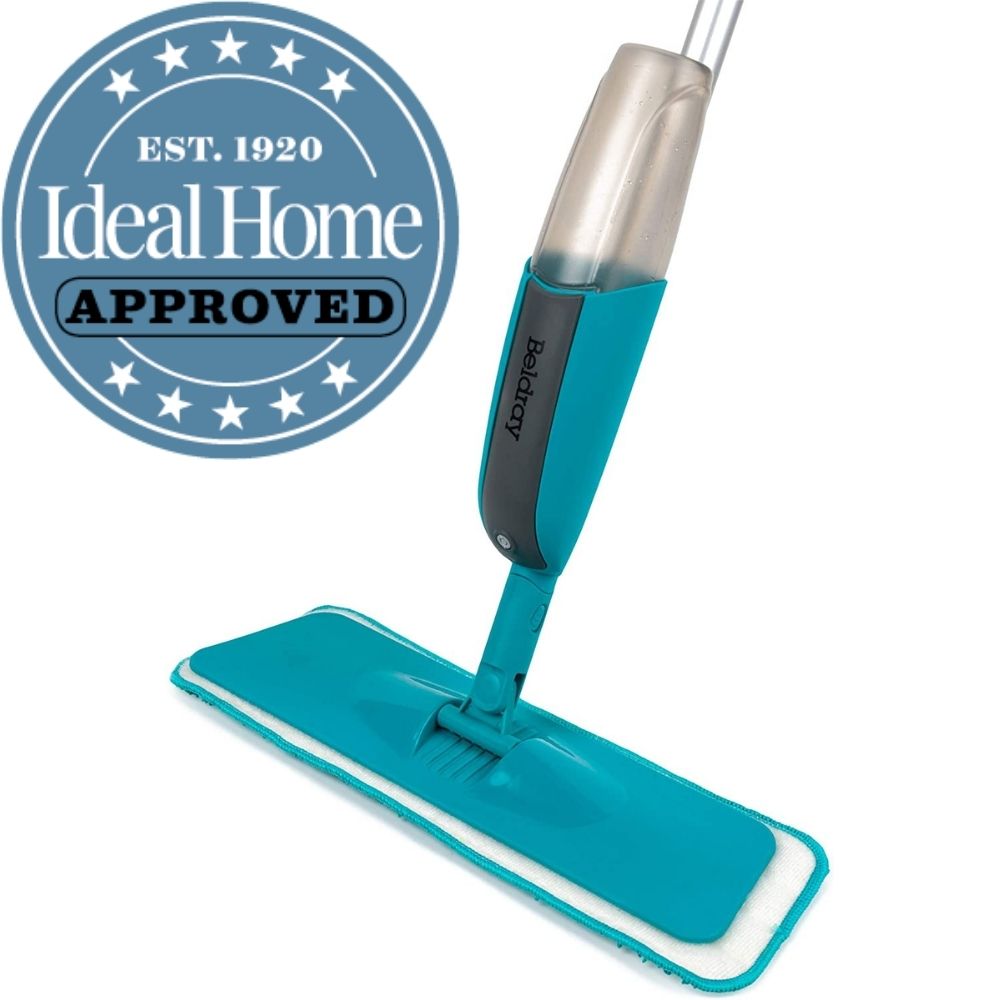
4. Take steps to prevent spills
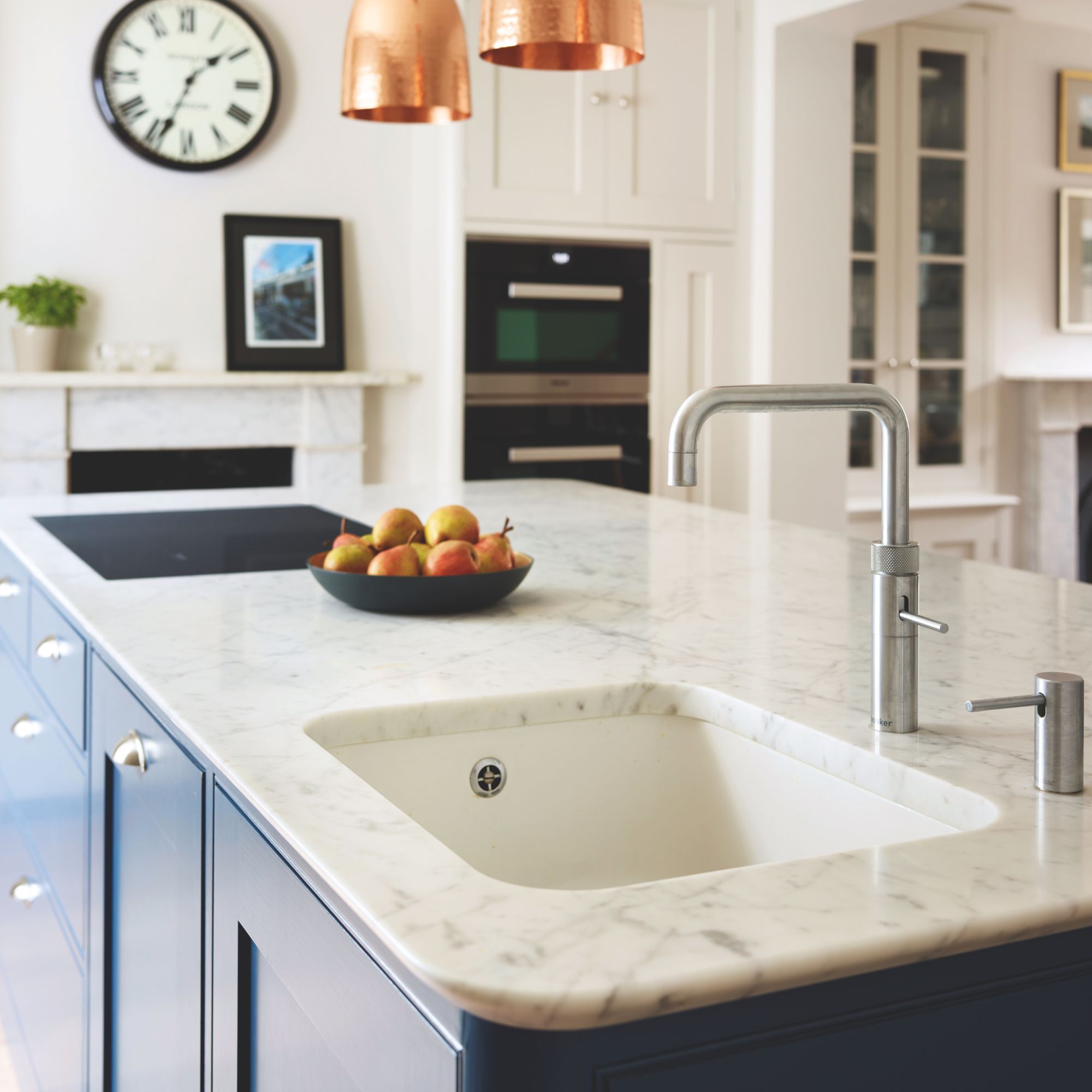
You know what they say: prevention is always better than the cure. And if you want to keep your kitchen cleaning sessions as quick and painless as possible, taking steps to prevent crumbs and spills can definitely work in your favour. This is what the pros do, too.
Michelin-starred head chef, Tom says, ‘To prevent spills in the first place, always use a silicone mat under your oven trays or line them with grease-proof paper. This helps catch drips, making clean-up a breeze and preventing messes from sticking.’
In fact, this is especially important if you want to reduce how often you need to clean your oven or if you hate having to clean oven trays every time you cook a meal. But that’s not the only thing you can do.
Tom adds, ‘Always prepare your ingredients and dish components on trays. This keeps your workspace tidy, contains spills and makes it easy to transfer food for cooking or plating up.’
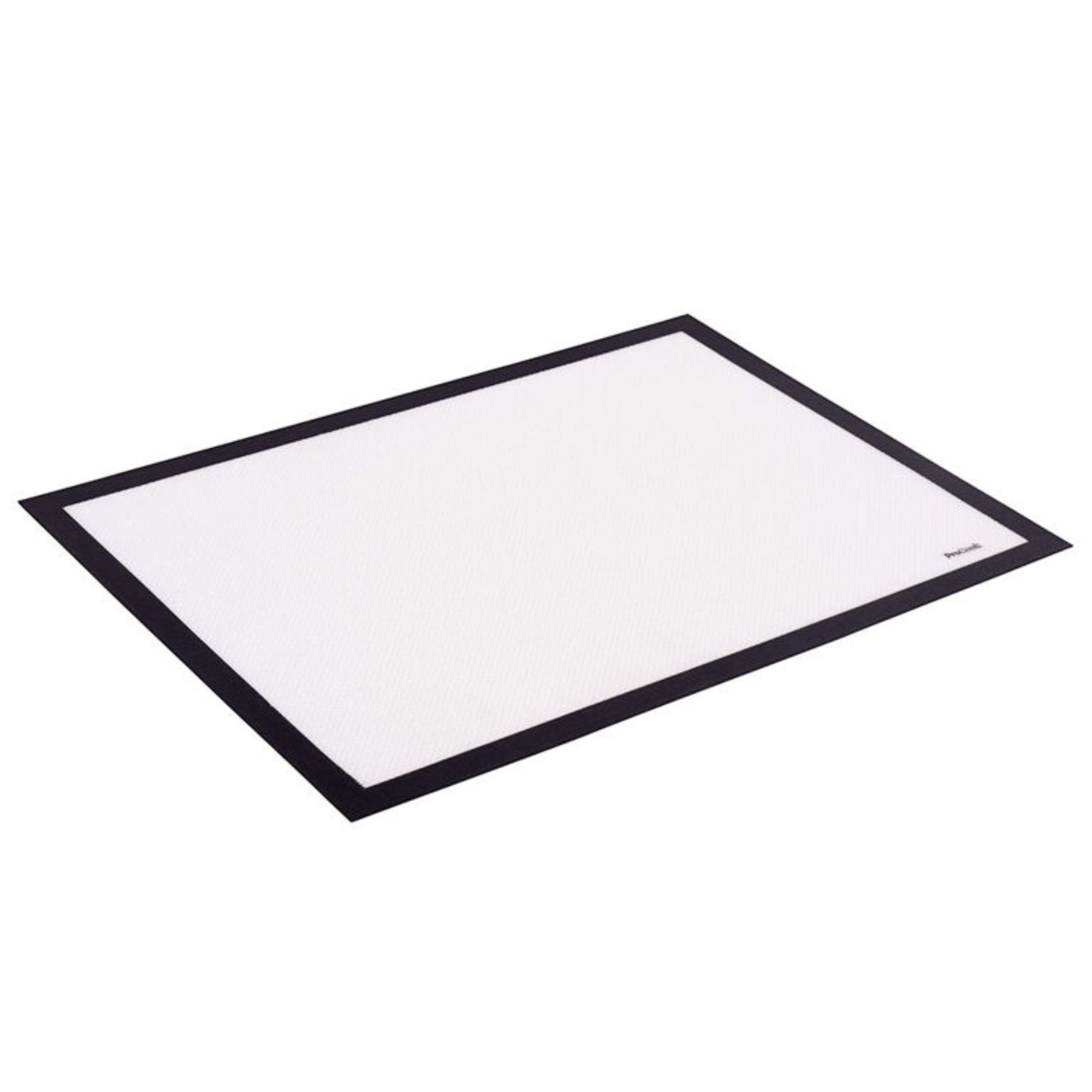
Reusable non-stick silicone liner is ideal for preventing kitchen spills, and is dishwasher, freezer, and microwave safe. It's even heat resistant up to 260°C.
5. Deal with stains and burnt food immediately
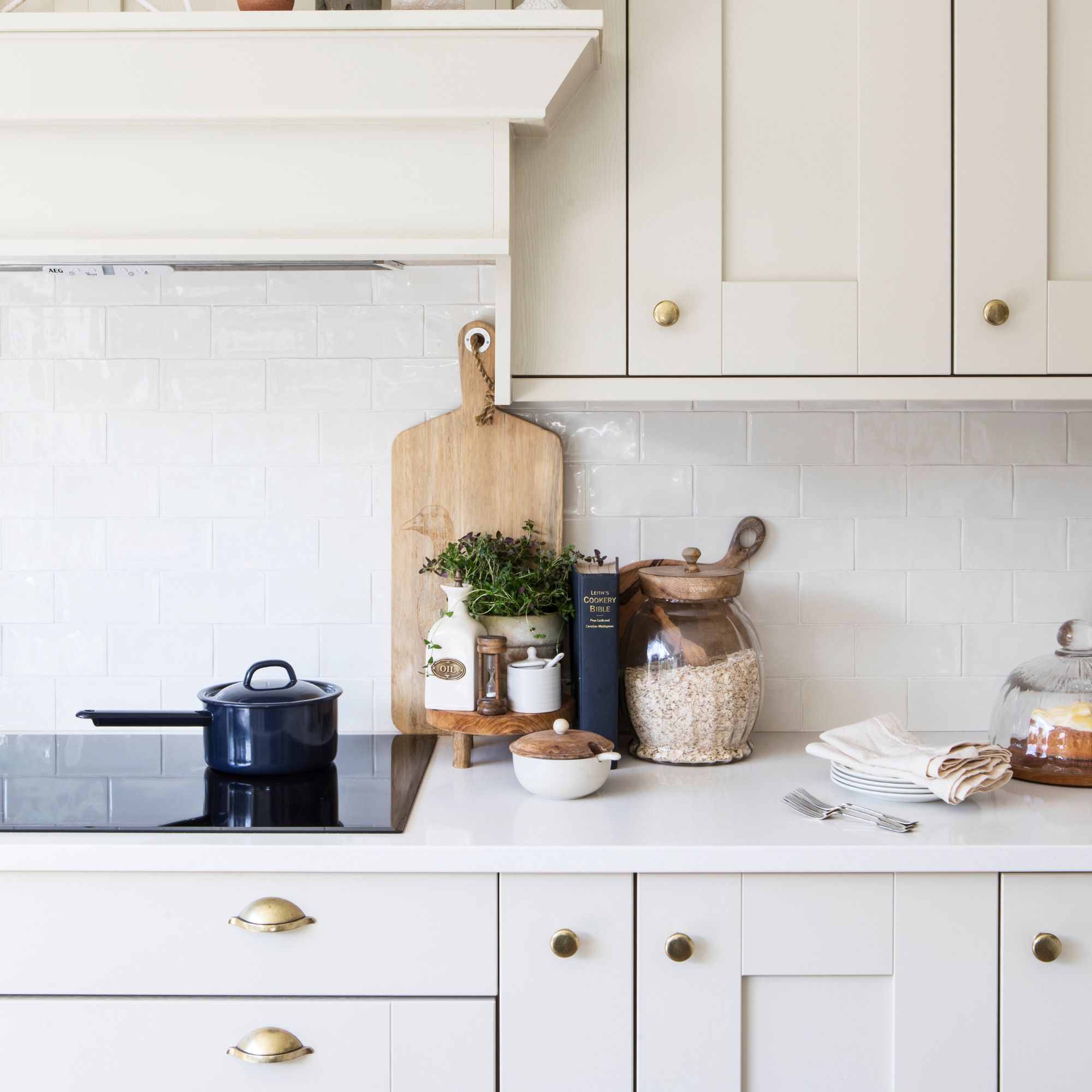
If you’ve ever tried to clean a burnt pan, you’ll know that it’s an absolute nightmare. However, this is something that many home cooks have to deal with on a regular basis - especially if they have kids distracting them when they’re trying to cook dinner.
So, you need to ask yourself, what would a professional chef do? According to Tom, you need to ask as fast as possible if you want to clean a kitchen like the pros.
He says, ‘If you happen to burn something or food sticks to the bottom of your pot, add water and let it simmer over low heat. This will help loosen the stubborn residue for easier cleaning.’
With the residue loosened, you can then scrub it off with normal washing-up liquid, lemon, salt, or even baking soda.
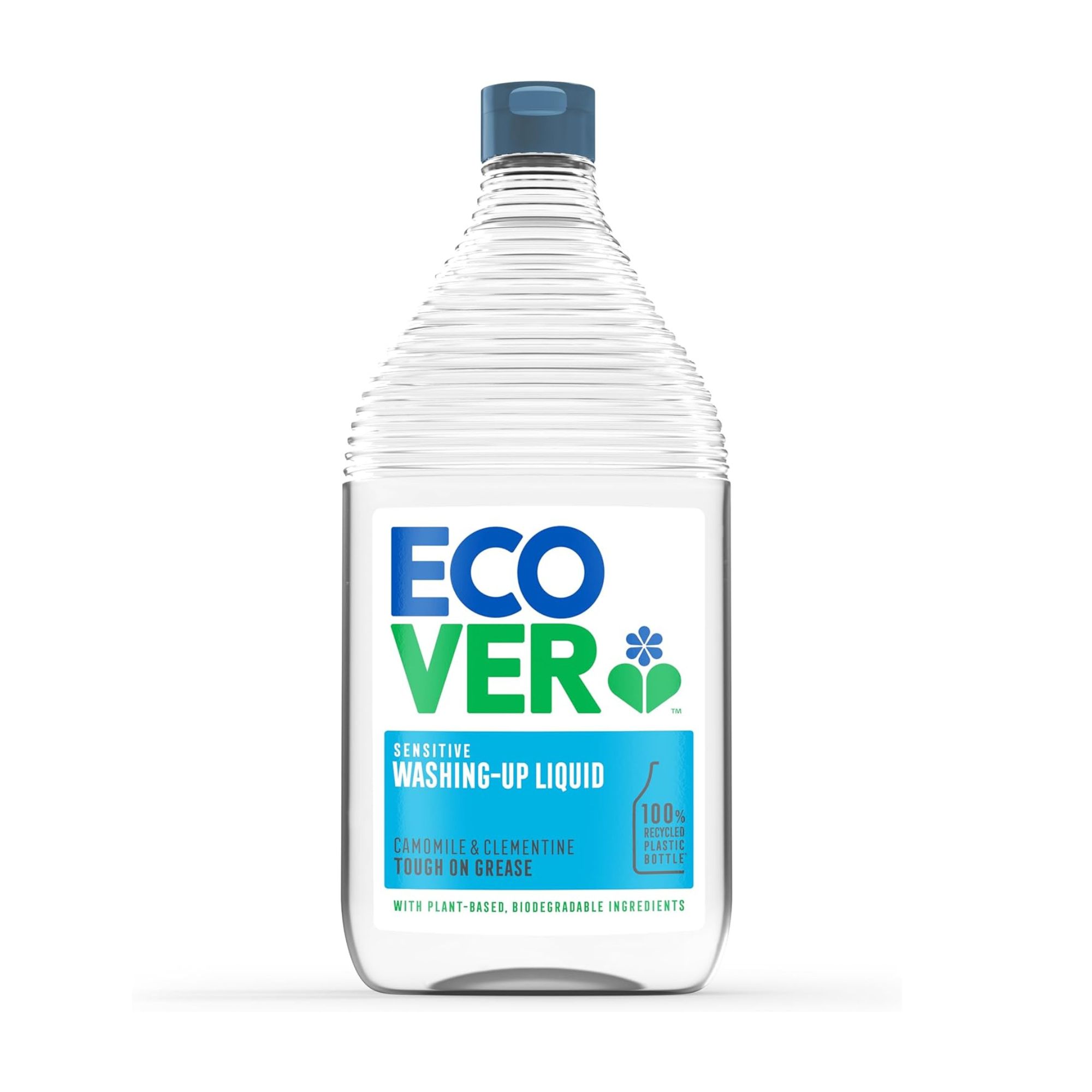
You can never have too much washing up liquid handy when you're trying to clean a kitchen like a professional chef. It's great for salvaging burnt pans, too.
6. Call in a dedicated pot wash
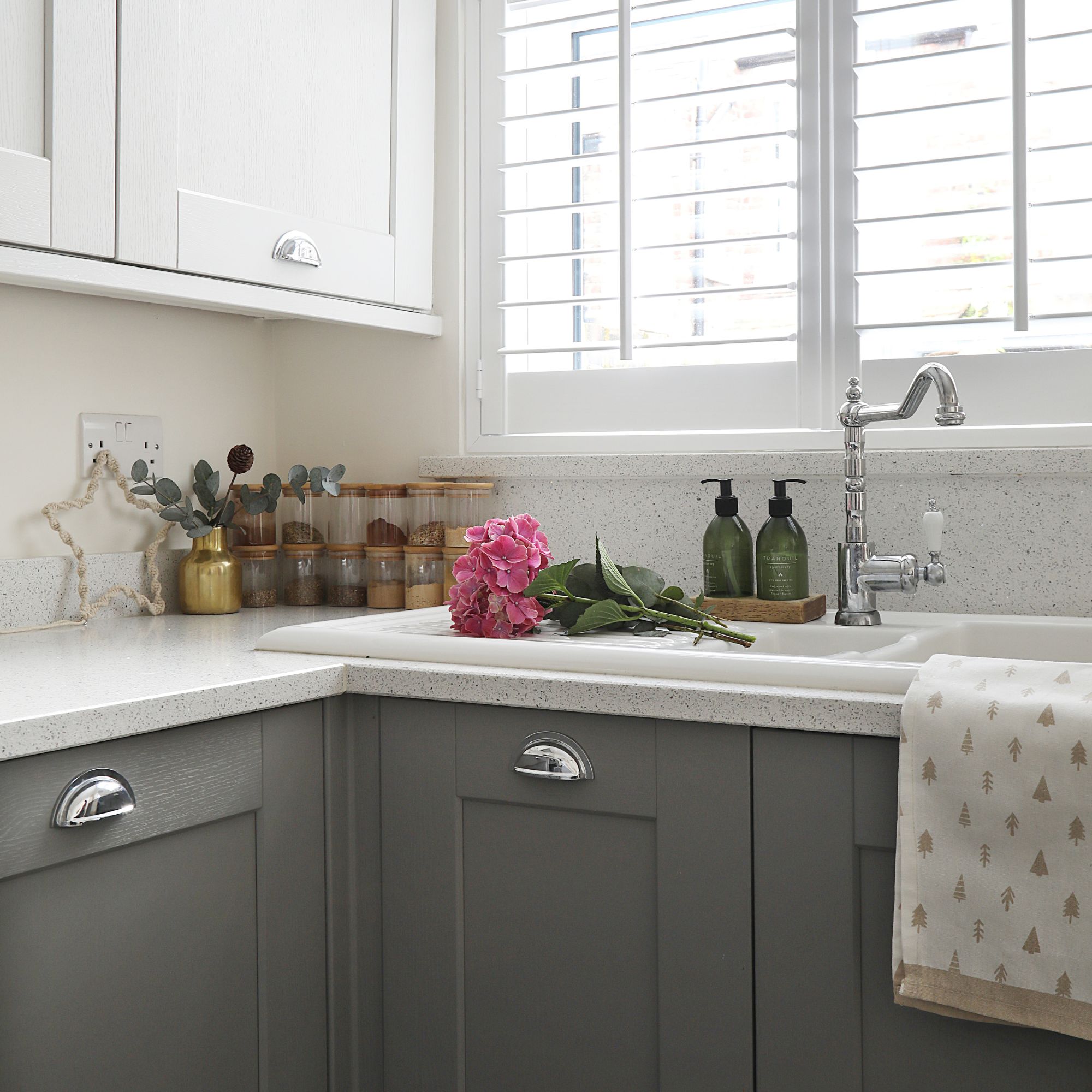
Remember that a professional kitchen is staffed by numerous people, all with their own jobs and tasks to tick off their to-do lists. So, it may be that you can’t clean a kitchen like a professional chef without some help.
Dennis says, ‘In a restaurant kitchen, there’s usually a dedicated “pot wash” or dishwasher, and at home, this could mean asking for a helping hand. Get family members or guests involved; maybe someone can take over dish duty while you focus on cooking. Having someone keep an eye on dirty pots and pans can make a huge difference, especially during a big meal prep.’
Then, you should only need to have a quick wipe-down after you’ve eaten to ensure your kitchen is as clean as can be. Plus, this is a great way to get the kids to do some chores!
FAQs
How do people keep their kitchens so clean?
The key to keeping kitchens clean is consistency and cleaning up as you go. If you allow dirt and mess to build up, it’ll have a knock-on effect that will ultimately be harder to clean.
So, you should aim to complete a ‘small’ clean while you’re cooking your meal to ensure everything is being washed up and put away when you’re done with it. Then, you can finish by giving everything a once-over.
Which part of the kitchen should be cleaned first?
Most experts agree that you should always clean a kitchen from the top to the bottom. This way, any dirt or crumbs that fall from the top can be cleared up last.
With this in mind, it’s always best to focus on the countertops first. You should then give them a scrub, wipe them down, and tidy away everything that doesn’t need to be there.
When you’ve done that, you can move onto the cabinets and the floors before admiring your handiwork. Like a pro.

Lauren Bradbury has been the Content Editor for the House Manual section since January 2025 but worked with the team as a freelancer for a year and a half before that. She graduated with a Bachelor’s degree in English and Creative Writing from the University of Chichester in 2016. Then, she dipped her toe into the world of content writing, primarily focusing on home content. After years of agency work, she decided to take the plunge and become a full-time freelancer for online publications, including Real Homes and Ideal Home, before taking on this permanent role. Now, she spends her days searching for the best decluttering and cleaning hacks and creating handy how-to guides for homeowners and renters alike, as well as testing vacuums as part of her role as the Ideal Home Certified Expert in Training on Vacuums, having spent over 110 hours testing different vacuum models to date!
-
 Will a conservatory add value to your home and how can you maximise it?
Will a conservatory add value to your home and how can you maximise it?This is what the pros say
By Amy Reeves
-
 I’ve been looking for a new signature scent for my home and The White Company's new fragrance is the exact summer holiday smell I needed
I’ve been looking for a new signature scent for my home and The White Company's new fragrance is the exact summer holiday smell I neededSantorini smells fresh, summery and sophisticated
By Kezia Reynolds
-
 How to remove algae from garden walls in five steps – and the cleaning product experts rave about for tackling it fast
How to remove algae from garden walls in five steps – and the cleaning product experts rave about for tackling it fastExperts share their top tips for getting garden walls algae-free
By Katie Sims
-
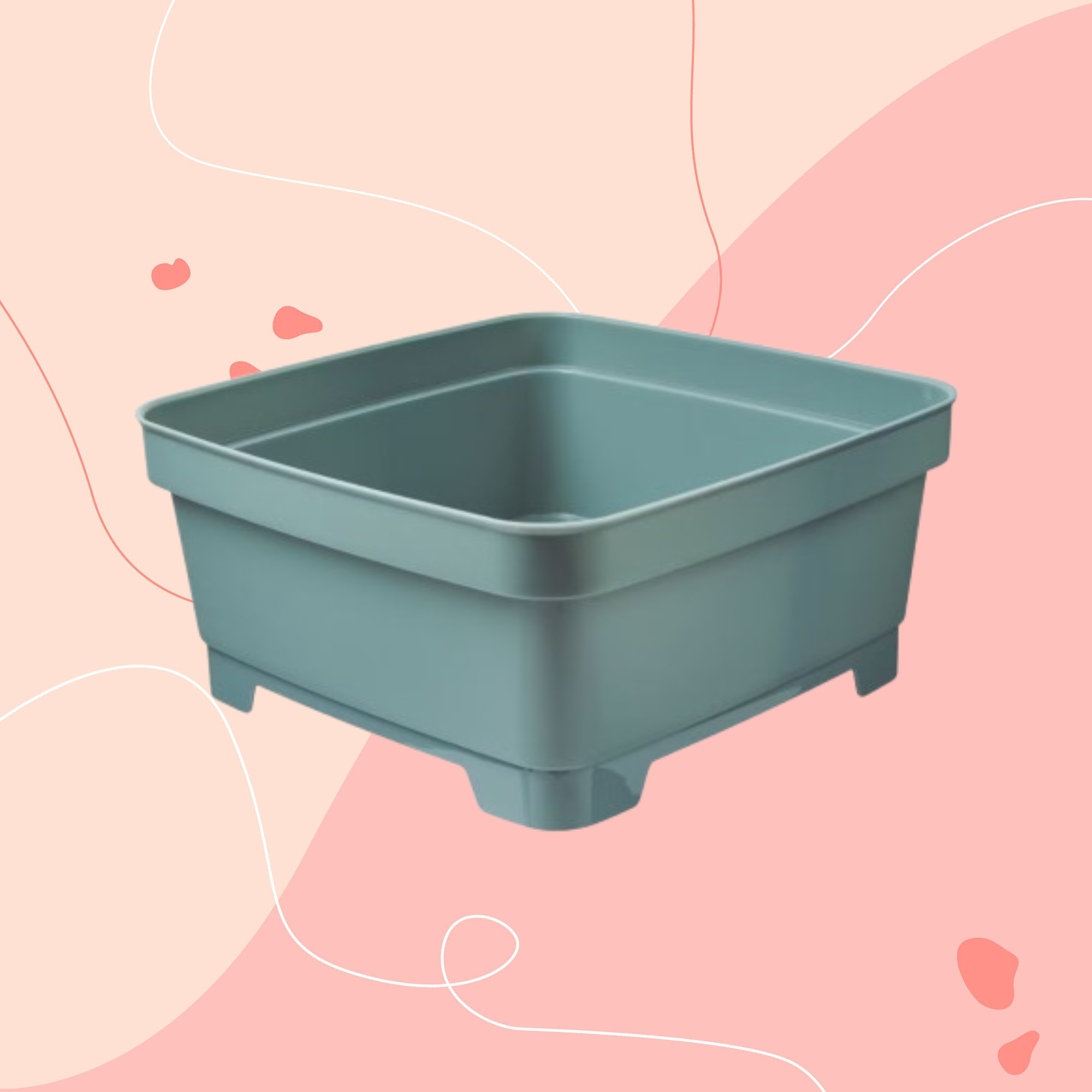 Aldi is releasing a budget alternative to the cult Joseph Joseph washing up bowl – it’s just £4.99
Aldi is releasing a budget alternative to the cult Joseph Joseph washing up bowl – it’s just £4.99The Joseph Joseph washing up bowl is an Ideal Home favourite - now we can't wait to try Aldi's alternative
By Kezia Reynolds
-
 I just bought my first home, and this £10 buy was the very first thing I bought for it to make it feel warmer and secure
I just bought my first home, and this £10 buy was the very first thing I bought for it to make it feel warmer and secureIf I did it all again, this would still be my very first buy
By Rebecca Knight
-
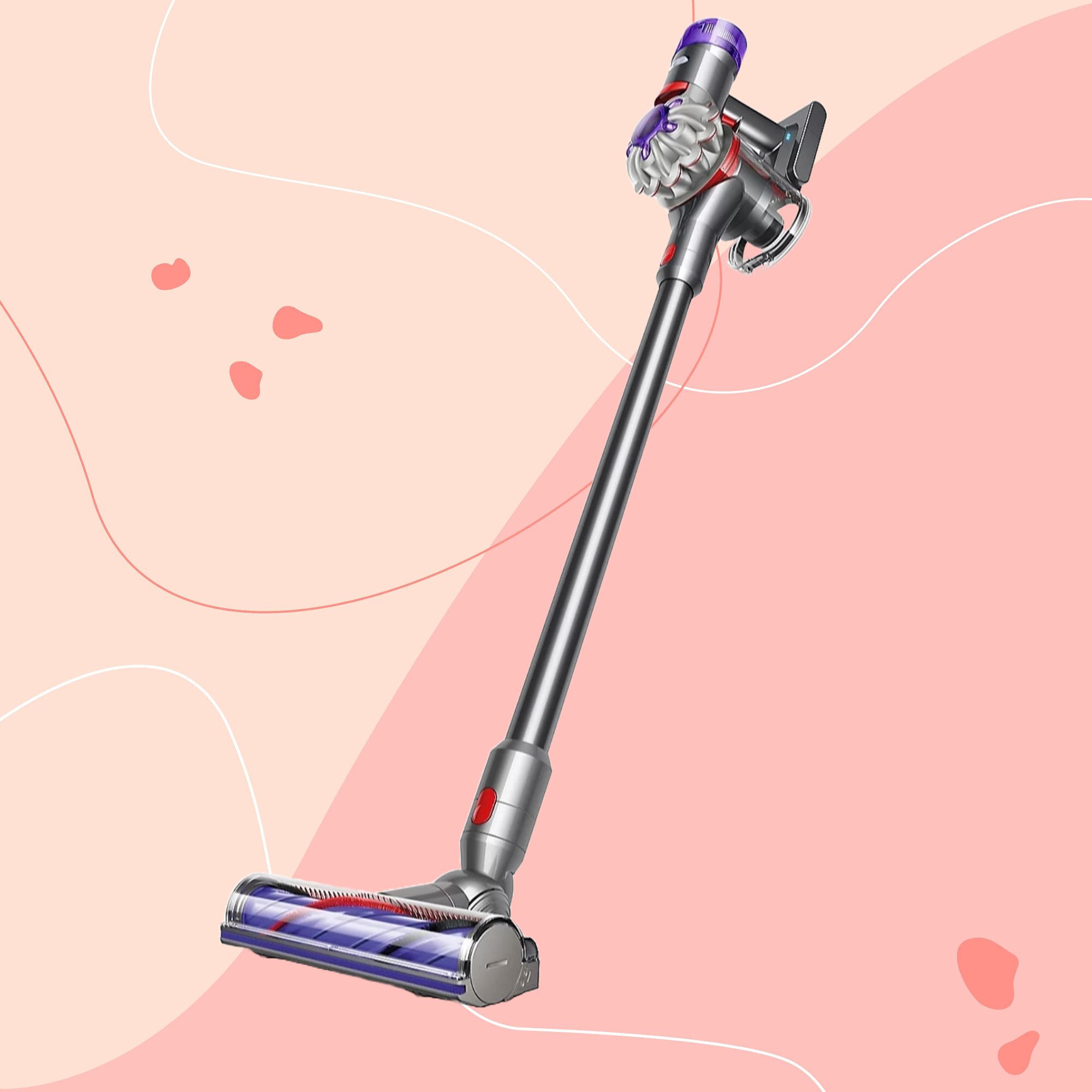 It’s normally impossible to find a Dyson vacuum for under £250 — but QVC has slashed the price of their bestselling models for a limited time
It’s normally impossible to find a Dyson vacuum for under £250 — but QVC has slashed the price of their bestselling models for a limited timeRun don’t walk to pick up the brand’s bestselling model for under £230 before it sells out
By Lauren Bradbury
-
 Catherine Zeta-Jones has revealed the cleaning product she swears by to keep her home fresh - and it’s just £8 on Amazon
Catherine Zeta-Jones has revealed the cleaning product she swears by to keep her home fresh - and it’s just £8 on Amazon'I use it on my counters. I use it on my walls. I use it on my doors. When I smell it, I know my house is clean.'
By Kezia Reynolds
-
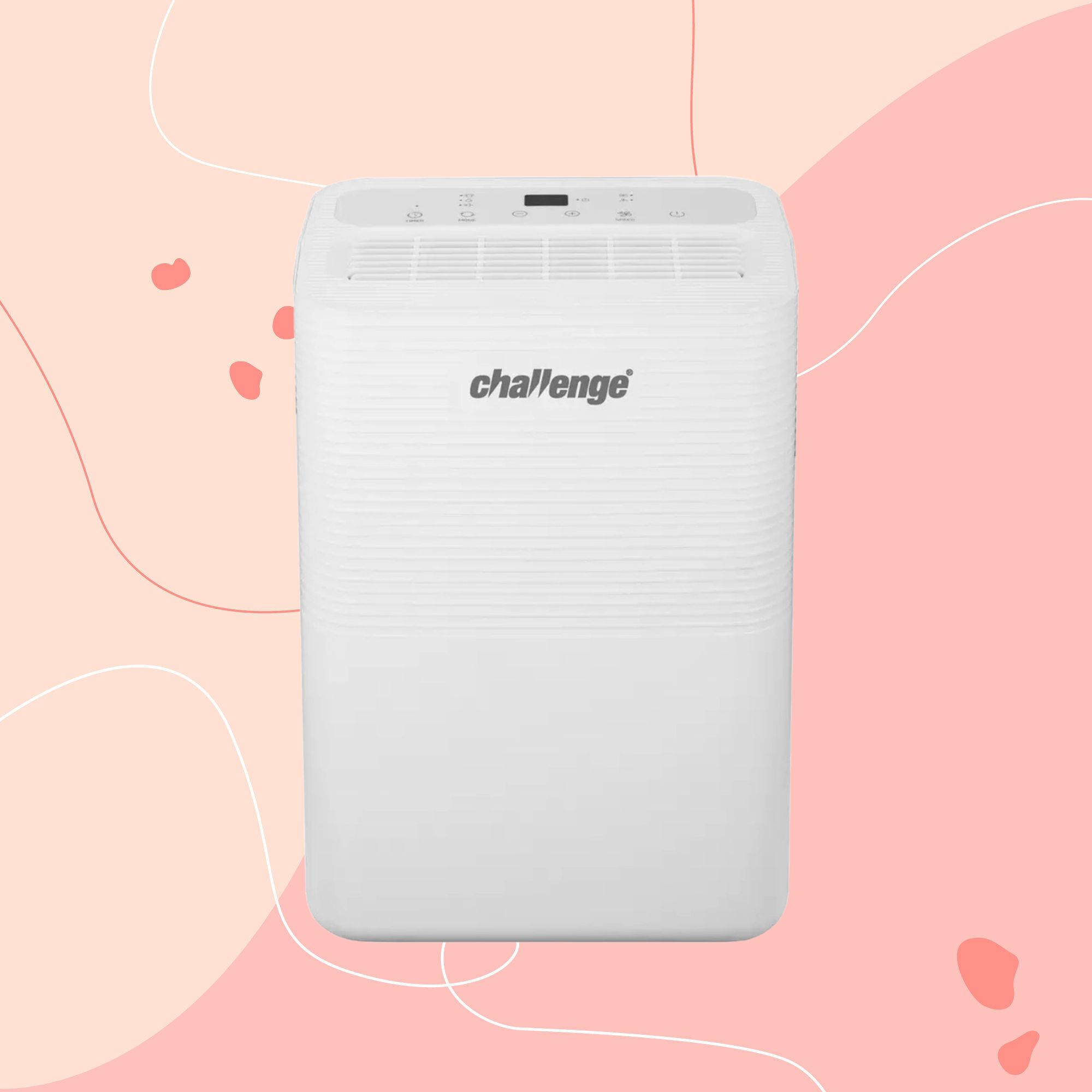 I tested the 12L Challenge dehumidifier in my damp Victorian home over winter — I haven’t spotted any signs of mould for the first time in five years
I tested the 12L Challenge dehumidifier in my damp Victorian home over winter — I haven’t spotted any signs of mould for the first time in five yearsThe Challenge 12L dehumidifier doesn’t have too many bells and whistles, but I can already see the difference it’s made to my damp home
By Lauren Bradbury
-
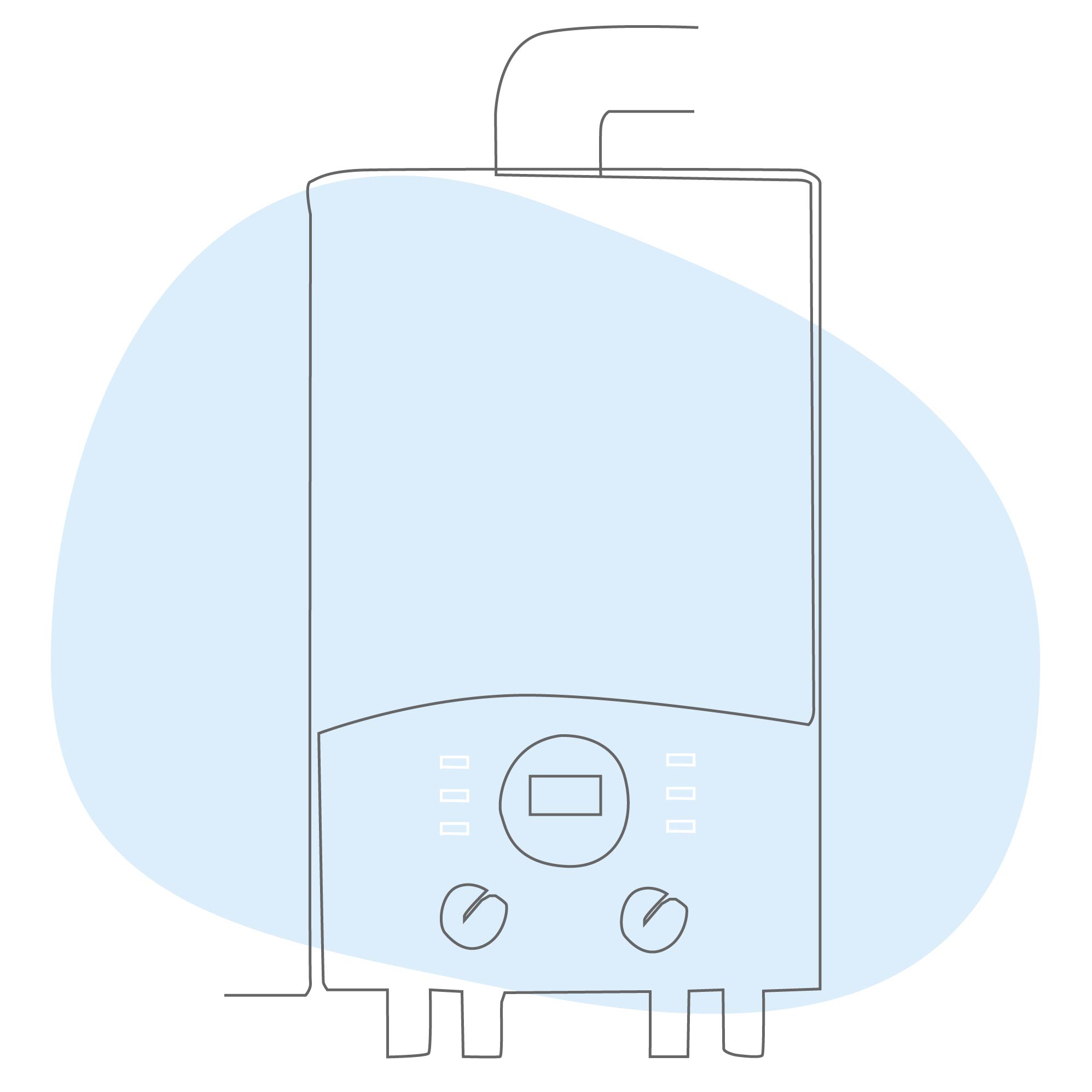 What is boiler flow temperature? Heating experts urge you to check yours now as you could be overpaying on your energy bills
What is boiler flow temperature? Heating experts urge you to check yours now as you could be overpaying on your energy billsTurning this little-known number down just a few degrees can result in some serious savings
By Lauren Bradbury
-
 Stacey Solomon has shared 5 nifty wardrobe storage hacks to make getting ready in the morning easier — and they're genius
Stacey Solomon has shared 5 nifty wardrobe storage hacks to make getting ready in the morning easier — and they're geniusThese five wardrobe storage hacks are a gamechanger
By Katie Sims
-
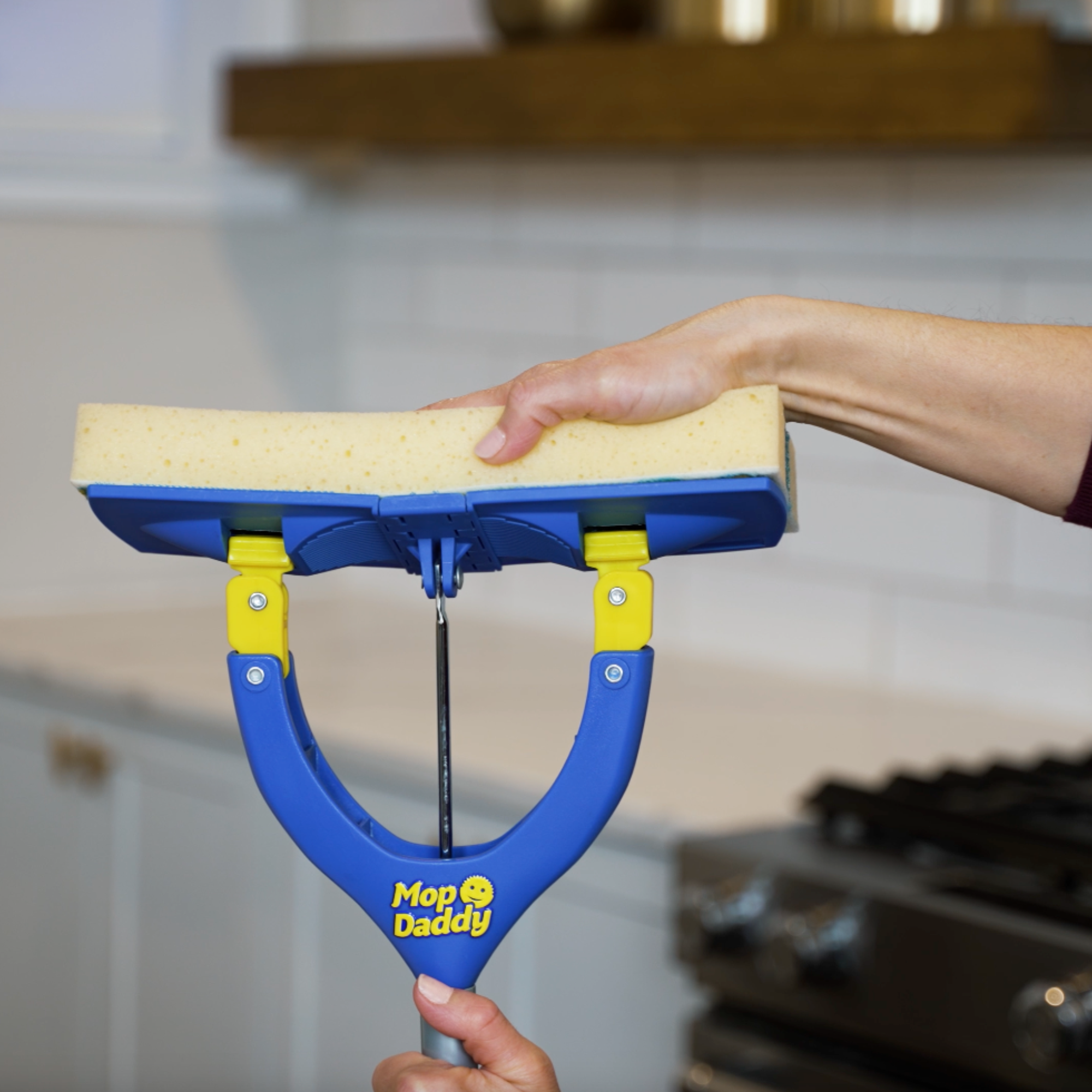 Cult cleaning brand Scrub Daddy has just launched a brand new butterfly mop — could it be the ultimate solution for banishing stubborn marks on your floor?
Cult cleaning brand Scrub Daddy has just launched a brand new butterfly mop — could it be the ultimate solution for banishing stubborn marks on your floor?We're obsessed with all things Scrub Daddy
By Kezia Reynolds
